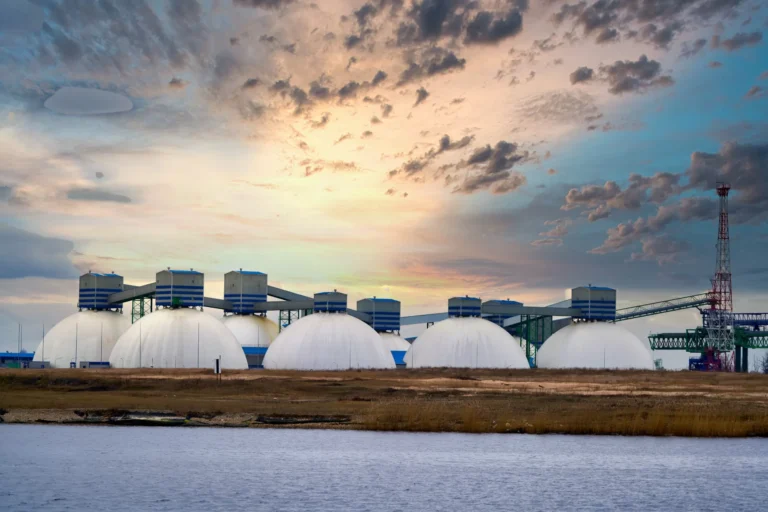Natural gas: full deposits are not absolute security for the EU

The European Union has accumulated record quantities of natural gas in its storage facilities and has done so ahead of schedule.
News of the advanced filling of the storage caverns was first announced in August by Brussels with understandable pride. By mid-August, storage was 90% full, which was the November target.
But energy suppliers did not stop there because, at the beginning of October, gas storage in the EU is close to 100%, so there is no more space in the depots. There is only one small problem: it may not yet be enough to guarantee the winter gas supply.
Last year, European countries experienced a milder winter than usual for most of the heating season, which was a good thing, given concerns about the sufficiency of gas in storage. Ultimately, much of the gas purchased at exorbitant prices over the summer sat in storage unused due to the weather.
Even with the mild winter and full storage, however, European governments have imposed energy austerity measures on large consumers. This year will be no different. The storage may be full to the brim, but there will be energy saving initiatives, including mandatory ones, just voted on in Germany. Because one thing that commentators often forget when talking about gas storage in Europe is that it does not cover 100% of consumption.
Natural gas storage capacity in the European Union actually covers about a third of demand, according to the EU itself. There is space to store up to 100 billion cubic meters of natural gas in the block and this is 33% of what it consumes, far from enough when it comes to security of supply.
Since storage can only cover a third of European consumption – or perhaps a little more, if we assume that energy austerity measures will work as well this year as last year – European countries will have to continue to import liquefied natural gas to all winter. Unless, of course, Europe gets lucky again with climate change and has another unusually warm winter.
Last year, European officials scrambled to find ways to improve the security of gas supplies. There was the agreement for the joint purchase of gas, which seems to be working so well that Brussels is considering making it a cornerstone of EU life. There was talk of buying more gas from Azerbaijan, but this fell through after the latest events in Nagorno-Karabakh.
Meanwhile, gas demand in the European Union has fallen between 10% and 15% over the past 12 months thanks to government efforts and prices. According to John Kemp of Reuters, there is little chance of a recovery in demand, given that it has remained subdued this year too, despite the greater certainty of supply.
Just how vulnerable Europe's gas supply is has been demonstrated recently by price developments following the industrial dispute over Chevron's Gorgon and Wheatstone LNG projects in Australia. Europe is not a large buyer of Australian LNG, but Australia is the world's largest exporter and any disruption to Australian supplies undermines global supplies.
Therefore, when workers on Chevron projects went on strike, gas prices in Europe skyrocketed, rising by 13% in a single day. To be fair, prices are still not close to those of the summer of 2022, but a daily increase of 13% is still considerable.
Interestingly, prices are currently higher than when Chevron workers began striking in September. The first day of the strike saw the TTF reference price in Europe rise to 34.50 euros per megawatt hour. Now the front-month TTF contract, according to Reuters, is trading at 38 euros per MWh, while the contract for delivery in January is trading at 44 euros.
This is the price of dependence on a global liquefied natural gas market that, as we saw last year, can easily turn into a seller's market, regardless of buyers' plans, including a buyers' cartel. Last year Europe excluded the poorest countries from the market, pushing them to return to coal. Yet, although this might be questionable from the point of view of fighting climate change, it was the most natural thing for Europe to do: secure energy supplies.
This year, Europe seems content to know that its gas storage caverns are full, and with average seasonal withdrawals of less than 600 TWh, the chances of a shortage are slim. Of course, there's also lower energy consumption by industrial users, which may be good for gas storage levels but is bad from an economic growth perspective, yet it doesn't attract much attention, at least from officials Europeans.
Commentators, however, are paying attention. In a September article on reducing industrial gas consumption, Reuters' Kemp put the issue simply. Noting the significant reduction in consumption, which has improved the security of supplies for the winter months, he went on to write that “ the region has paid a high price in terms of reduced manufacturing activity, which could lead to permanent deindustrialization unless gas prices are not reduced."
Europe may have gas, but it will lose its industry.

Thanks to our Telegram channel you can stay updated on the publication of new Economic Scenarios articles.
The article Natural gas: full deposits are not an absolute security for the EU comes from Economic Scenarios .
This is a machine translation of a post published on Scenari Economici at the URL https://scenarieconomici.it/gas-naturale-i-depositi-pieni-non-sono-una-sicurezza-assoluta-per-la-ue/ on Tue, 10 Oct 2023 06:30:32 +0000.

